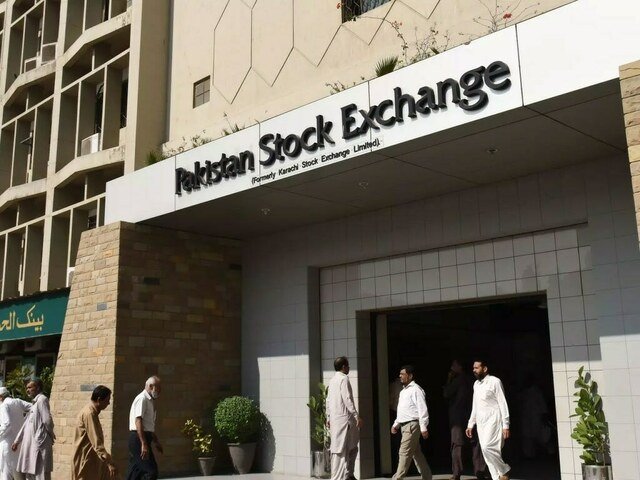PSX
The Pakistan Stock Exchange (PSX) faced a dramatic decline on Monday, with the benchmark KSE-100 Index shedding more than 3,000 points during early trading.
The index hit an intraday low of 114,746.23, marking a drop of 4,045.43 points or -3.41%. It briefly touched a high of 117,601.62 but remained down by 1,190.04 points (-1.00%) compared to the previous close of 118,791.66.
Analysts pointed to both domestic and international factors contributing to the sharp decline. Mustafa Mustansir, Director of Research and Business Development at Taurus Securities, attributed the pullback to the uncertainty caused by the Trump administration’s tariffs and their ripple effect on global markets, especially in the US and Asia.
He also highlighted investor concern over delays in the government’s plan to secure bank borrowings to resolve Pakistan’s power sector circular debt. Furthermore, the recent reduction in power tariffs, which investors viewed as temporary with no long-term tariff adjustments, added to the negative sentiment.
Amreen Soorani, Head of Research at Al Meezan Investment, noted that the KSE-100 index had dropped significantly, with losses exceeding 3% by mid-session.
She linked the market’s downturn to global factors, particularly the market meltdowns driven by fears of international trade tensions and potential recession risks.
Several major Asian stock indexes also witnessed significant losses, with Japan’s Nikkei plunging 6%, South Korea dropping 5%, and the MSCI Asia-Pacific index falling by 3.6%.
China’s blue-chip stocks lost 4.4%, and Taiwan’s index tumbled nearly 10%. Saudi Arabia’s stock market saw its worst daily loss since the COVID-19 pandemic, dropping 6.78%.
Investor anxiety was further compounded by skepticism regarding Prime Minister Shehbaz Sharif’s recent announcement of a Rs7.41 per unit reduction in electricity prices, which initially had been seen as a step toward economic relief.
The breakdown of this relief package, which includes adjustments in petroleum levies and quarterly and monthly fuel cost adjustments, raised doubts among investors about its effectiveness.
While the relief was part of a larger effort to reform the country’s energy sector, uncertainty around the Rs1.25 trillion bank borrowing plan to address the massive Rs2.4 trillion circular debt kept investors cautious.
As global markets struggle with trade tensions and economic instability, coupled with domestic challenges, the PSX continues to face an uphill battle in maintaining investor confidence.










